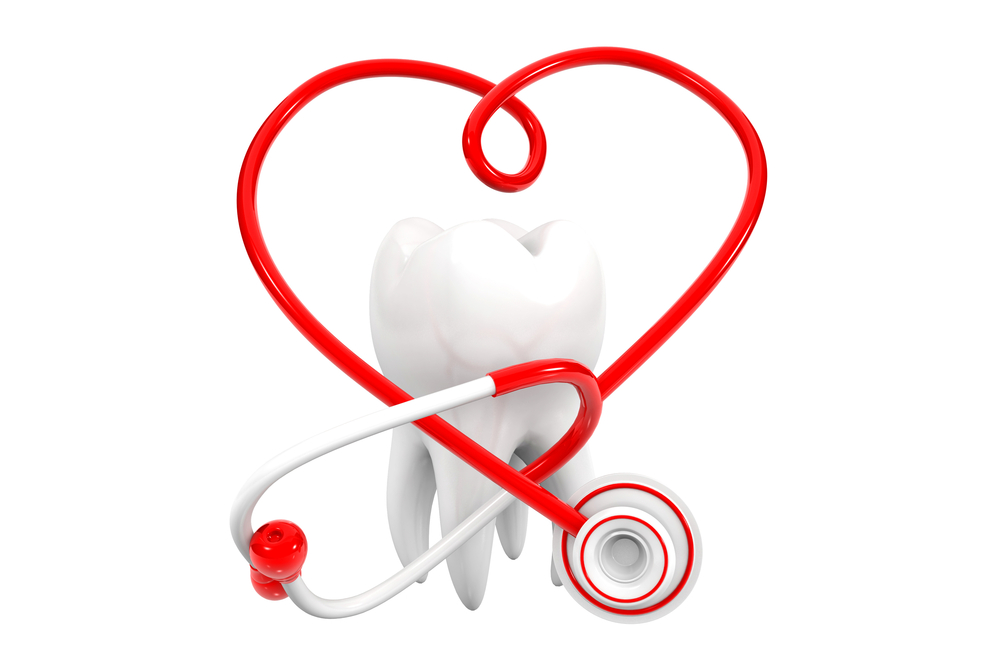Taking care of your oral health is crucial to a healthy lifestyle, but oral health isn’t independent of other areas of bodily health. Your body is one big machine and all the parts are reliant on the others to keep you healthy and functioning properly. One connection that may come as a surprise is that your oral health has a direct connection to your cardiovascular health. But just how much does oral health influence heart health, and how? Let’s find out.
Where is the connection?
To put it simply, bacteria. The bacteria produced in the oral cavity, and how the body responds to that bacteria, connect to cardiovascular health. The same bacterial that can cause periodontitis and gingivitis can also travel to other parts of the body through blood vessels. This causes inflammation of the blood vessels and sometimes damage. In extreme cases, this can lead to heart attacks or stroke. Oral health may be especially important in people with artificial heart valves or other artificial cardiac structures. There have been links found between gum disease, tooth loss, diabetes, and cardiovascular disease. The connection between diabetes & cardiovascular disease is strong, and oral health & periodontal treatment have been shown to have a positive impact on people with diabetes.
Bacteria may not be the direct cause, but rather how the body responds to the bacteria. The immune response of the body when interacting with bacteria is inflammation. This can set off vascular irregularities and damage throughout the body, including the heart.
It can be hard to tell for sure what is causing problems in some cases because there are confounding factors that can impact heart health and oral health independently of one another. One example of this is smoking, which causes damage to the oral cavity as well as the cardiovascular system, but not as a direct result of one or the other. A study showed that there was a moderate connection between tooth loss and cardiovascular disease, but when the subjects smoking habits were taken into account, the correlation significantly decreased.
Who is at risk?
Individuals with chronic gum disease such as gingivitis or periodontal disease have the highest risk for cardiovascular disease caused by oral health conditions. Even without gum disease, plaque buildup causes bacteria that can also move through the bloodstream, resulting in inflammation. Smokers and the elderly are more susceptible than others. Individuals will notice the following symptoms when they have gum disease:
- Red and swollen gums
- Sore gums that bleed easily when brushing, flossing, or eating
- Receding gums
- Bad breath or frequent bad taste in your mouth
- Teeth feel loose or as if they are separating from other teeth
Prevention
Taking care of your oral health will have a positive impact on blood pressure, inflammation, and overall heart health. Neglecting your oral health can worsen heart valve infections and increase the chances of cardiovascular disease. Make sure to brush and floss regularly, and see a dental professional for regular checkups and cleanings. In extreme cases of gum disease, you may start experiencing tooth decay and tooth loss. If this happens, speak with a dental professional to discuss options for treatment, such as dental implants.
In Summary…
There is definitely a connection between your oral health and your cardiovascular health. Gum disease and the bacteria that comes with it have been connected with cardiovascular disease in many individuals. The risk level and degree to which oral health might impact heart health vary from individual to individual. It is important to consider other factors that can affect both systems, such as smoking, age, other history of diseases, and more. The main point is that if you make sure that you take good care of your oral health, you are actively lowering your chances of developing hypertension and cardiovascular diseases. Make sure to brush and floss frequently, and get your teeth professionally examined & cleaned on a regular basis. Your mouth and your heart will thank you for it!

